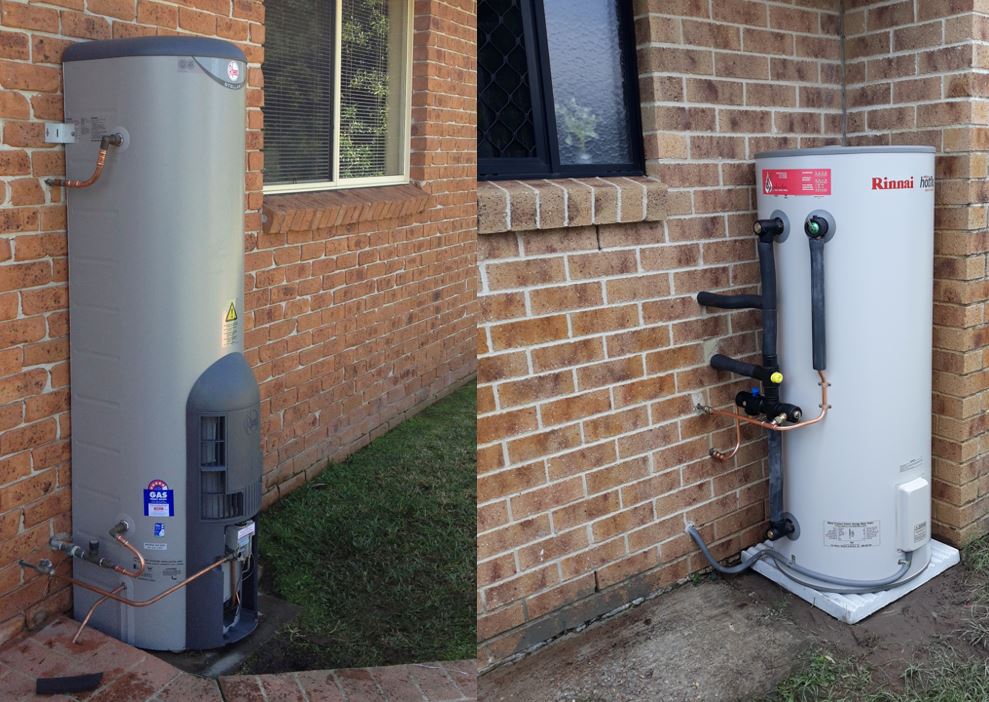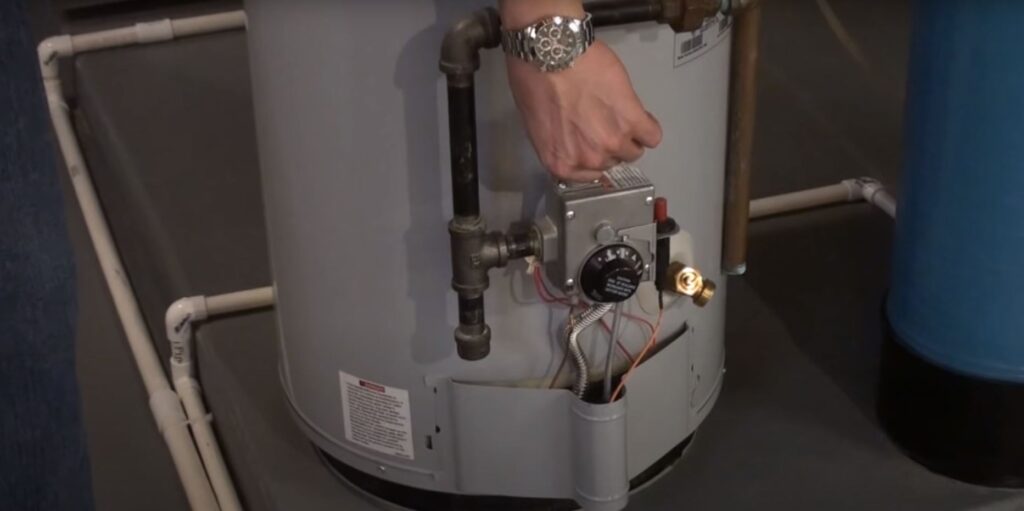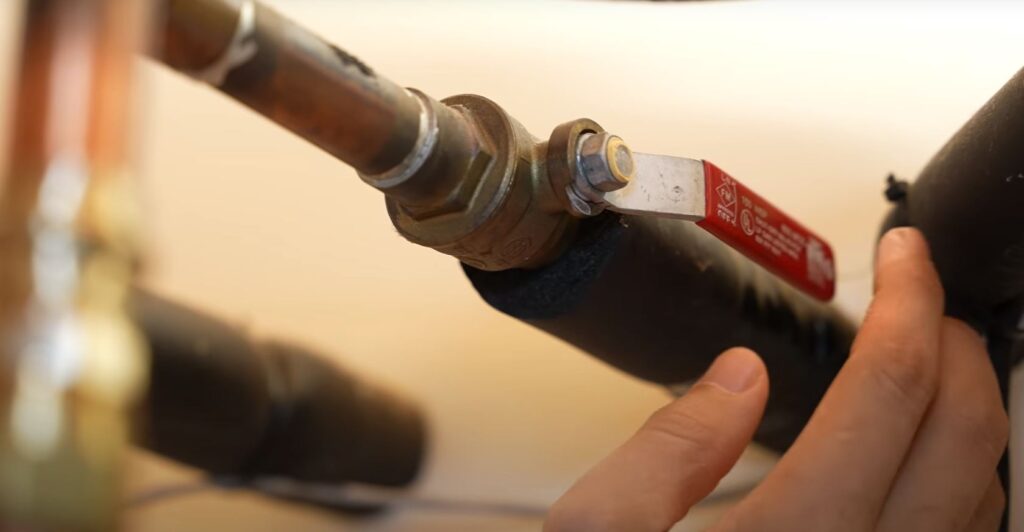Troubleshooting a Gas Water Heater: Common Causes for Lack of Hot Water
If your gas water heater in Malvern isn’t producing hot water, there could be several reasons behind this issue. Here are some common causes and their respective solutions:
Incorrect Thermostat Setting
The issue might be as simple as the thermostat being set too low. Adjust it to a higher temperature, but be careful not to exceed 120°F to prevent scalding.
Pilot Light Issues
If the pilot light is out, it needs to be relit. If relighting efforts fail, it’s advisable to seek professional help.
Sediment Buildup in the Tank
Sediment accumulation at the bottom of the tank can insulate the water from the heat. Regular flushing of the tank and the use of a water softener can resolve this.
Damaged Dip Tube
A broken dip tube can cause cold water to mix with hot at the top of the tank, resulting in lukewarm water. Replacing the dip tube is a typical solution.
Malfunctioning Gas Valve
A faulty gas valve can hinder proper heating. If there’s a gas smell or a suspected leak, turn off the gas immediately and consult a professional.
Internal Heating Element Issues
In electric heaters, a faulty heating element might be the culprit. Inspecting and potentially replacing the element may be required.
High Demand vs. Tank Capacity
An increased hot water demand may surpass the heater’s capacity. Upgrading to a larger tank or a tankless model might be necessary.
Clogged Pipes or Valves
Blockages in the pipes or problems with valves could restrict hot water flow. Inspecting these components is recommended.
Air Flow and Combustion Issues
Adequate airflow is essential for the burner’s proper function. Ensure there are no blockages in the flue and that the airflow is unobstructed.
Thermocouple or Thermopile Issues
These components are crucial for the pilot light’s operation. If they are malfunctioning, replacing them might resolve the issue.
Remember, regular maintenance of your water heater can prevent many of these issues. If you’re not comfortable troubleshooting these problems yourself, it’s wise to seek professional help. In Melbourne, services like Hot Water Repairs Melbourne are equipped to handle these issues efficiently.
For detailed troubleshooting and repairs, especially concerning safety aspects like gas leaks or electrical components, always consult with a qualified technician to ensure safe and correct handling.
15 Essential Frequently Asked Questions on Gas Water Heater Issues
Why might my gas water heater not be producing hot water?
There could be several reasons, including issues with the thermostat setting, a malfunctioning pilot light, sediment buildup in the tank, a broken dip tube, a faulty gas valve, or problems with the internal heating elements.
Could a thermostat issue cause no hot water?
Yes, if the thermostat is set too low or malfunctioning, it could result in inadequate hot water. Adjusting or replacing the thermostat might be necessary.
Is the pilot light important for hot water production?
Definitely. If the pilot light is out, it needs to be relit for the water heater to function. Persistent issues with the pilot light might require professional attention.
What impact does sediment buildup have on a water heater?
Sediment buildup at the tank’s bottom can insulate the water from heat, reducing the heater’s efficiency. Regular flushing is recommended to prevent this.
How does a damaged dip tube affect hot water supply?
A damaged dip tube can cause cold water to improperly mix with hot water at the top of the tank, leading to lukewarm water output.
Could a faulty gas valve be the reason for cold water?
Yes, a malfunctioning gas valve can prevent proper heating. If you suspect a gas leak or valve issue, turn off the gas and call a professional immediately.
What should I do if there’s no hot water in one part of the house?
This could indicate an issue not with the heater but with the water supply, like a closed valve, cross connection, pipe deposits, or ice buildup.
Is it normal for water to be lukewarm instead of hot?
Lukewarm water could be due to several issues, such as a clogged tank, damaged dip tube, or incorrect thermostat settings.
Could a malfunctioning heating element cause insufficient hot water?
Yes, especially in electric water heaters. If one of the heating elements is malfunctioning, it may result in poor heating and insufficient hot water.
What are the implications of an undersized water tank?
An undersized tank may not meet high hot water demands, leading to insufficient hot water supply. Consider upgrading your heater if your demand has increased.
How does the heat source affect water heating in a gas heater?
In gas heaters, issues with the gas burner, such as improper gas pressure or dirty burners, can affect the water heating process.
Can improper air flow impact a gas water heater’s performance? Yes, poor airflow can reduce the efficiency of the heater and pose safety risks due to carbon monoxide leakage.
What are some common water heater problems besides lack of hot water?
Common issues include running out of hot water quickly, temperature fluctuations, leaking, strange noises, rusty water, and smelly hot water.
How can I troubleshoot a gas water heater?
Check the pilot light, thermostat, thermocouple, drain the tank, replace the anode rod, and ensure proper gas flow and electrical connections.
When should I consider replacing my gas water heater?
If your heater is over a decade old, experiencing frequent issues, leaking, or producing rusty water, it might be time for a replacement.




